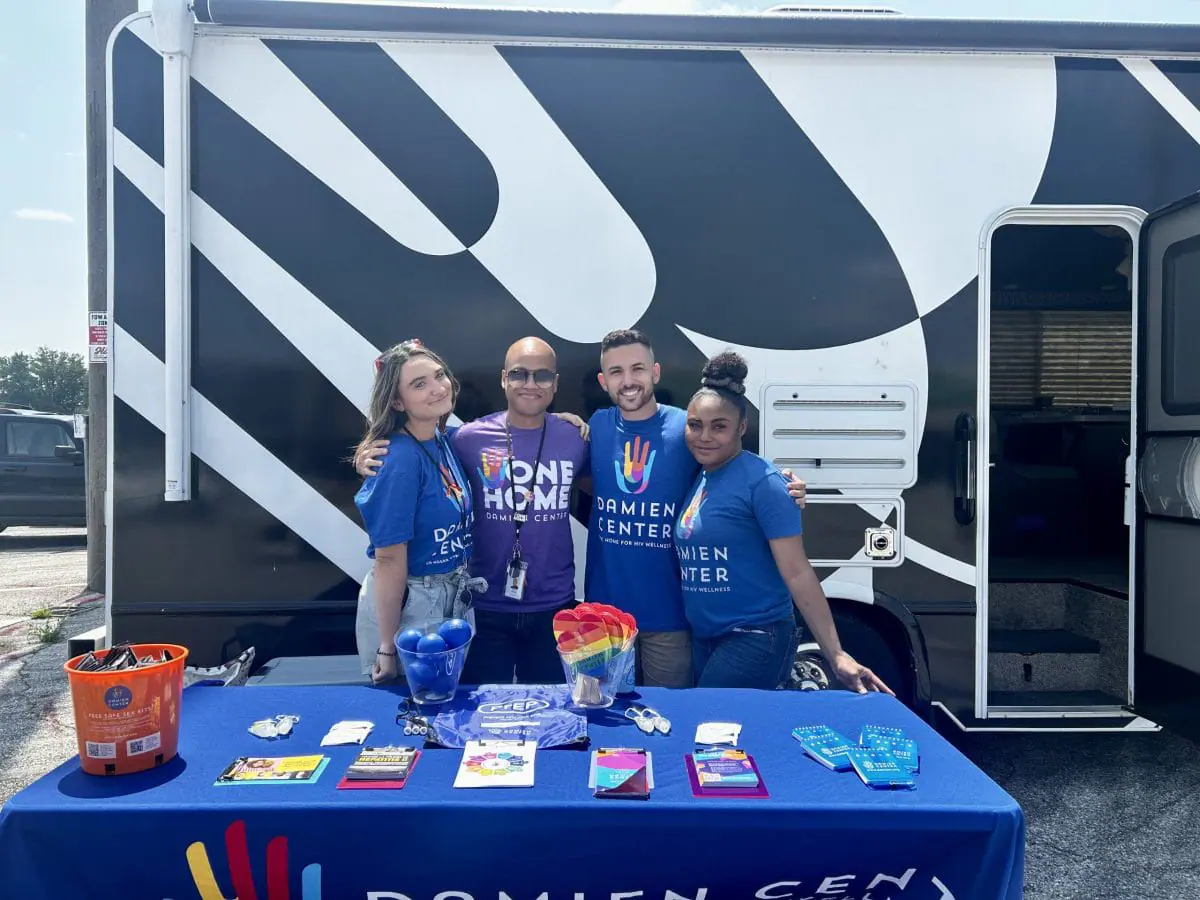Hepatitis C testing offered in 2 free clinics at Central Library
INDIANAPOLIS (MIRROR INDY) — About 69,000 Hoosiers are living with hepatitis C — a virus spread through blood that can lead to severe liver damage or cancer. But most don’t know they have it.
“If you don’t know you’re living with hepatitis C, you can’t get the cure,” said Seth Thomas, the program manager for Connect to Cure, a statewide testing initiative from the Damien Center and Health Foundation of Greater Indianapolis.
The team is providing free testing to community members on May 10 and May 15 at Central Library on 40 E. St. Clair St. The events, held from noon to 3 p.m., will also feature free lunch and harm reduction supplies.
Many people living with hepatitis C do not experience symptoms, which can include yellow skin or eyes, stomach pain, fever, dark urine, joint pain and fatigue. The Centers for Disease Control and Prevention recommends U.S. adults get tested at least once in their lifetime.
“There’s so much stigma,” Thomas said. “A lot of people correlate hepatitis C with injection drug use, or drug use in general. But really anyone could be living with it.”
Certain factors can increase your risk of having hepatitis C, according to the CDC:
- Sharing needles, syringes or other equipment for injecting drugs
- Getting a tattoo or piercing at an unlicensed site that does not sterilize equipment
- Having a blood transfusion or organ transplant before 1992
- Perinatal infections passed on by mothers living with hepatitis C
- Exposure from working at a health care facility
- In rare cases, having sex with a person living with hepatitis C (preventable with condoms)
- Sharing personal items with a person living with hepatitis C, including nail clippers, toothbrushes and other items that may come into contact with small traces of blood
In 2019, Indiana ranked first in the country for reported hepatitis C infections. In 2021, that number dropped to ninth in the nation, though the CDC has not released new data since then. Marion County remains a hotspot, Thomas said.
Testing is a twofold process: first, you will have your finger pricked to test for antibodies, which will reveal if you have ever had the virus. If that result is positive, you should get an RNA test, which will show if you currently have hepatitis C. Connect to Cure’s events this month will have the antibody tests available; a navigator can help you get follow-up testing and connect you to wraparound services. Medications can treat the virus within eight to 12 weeks.
To learn more about Indiana testing and resources, go to ConnecttoCure.org.
Mirror Indy reporter Mary Claire Molloy covers health. Reach her at 317-721-7648 or email maryclaire.molloy@mirrorindy.org. Follow her on X @mcmolloy7.
